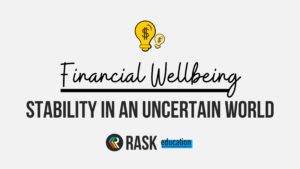This article explores the ethics behind ETFs, Super funds and Robo advisers in Australia, including some key questions to ask and information to keep an eye out for.
When you invest via an ETF, Robo Adviser, managed fund or Super fund, just remember that it’s only the ‘holding structure’ that changes. For example, if you invest in an ‘Australian shares ETF’ you’re investing in shares, but you do it via the ETF. Or if you invest in the ‘100% Australian shares’ option inside your Super, you’re investing in shares — but they’re held by your Super fund.
For example, let’s say you’re a hipster with some fancy facial hair and a half-sleeve tattoo (which you got on a spiritual journey in the Amazon). You want to drink a beer (shares). It doesn’t matter if you get the beer straight from the tap (direct shares), via a can (Super), stubby (ETF), or bottle (robo adviser).
For the purposes of this course, it’s important to remember that the fund or structure is just a way to get what you want (ethical investments). Of course, you need to consider the structure — but that’s not the focus of this course. So with my tips, below, keep in mind if I say ‘fund’ or ‘ETF’ or ‘Super’ it doesn’t really matter what we’re talking about — the tips apply to any structure.
Before you leave me to grab a cold one, here are my tips for picking a Super fund or ETF:
Ask the fund or robo adviser for their ESG policy
Ask the fund or robo adviser for their ESG policy (if available) or documentation on how they consider these ESG factors. You might be surprised — I’ve found that many fund managers have some type of belief or policy, but they often don’t lead their marketing with it — just in case it doesn’t jive with all their investors. Jump onto their website, leave an email or give them a call. Usually, you’ll end up speaking with their ‘BDM’. Remember, these folks are gifted salespeople, often earning $200k or more.
Check what they’re saying against the list of companies or investments inside the portfolio (see below). You might be as surprised as I was — most of the good fund managers exclude or avoid heavy manufacturing.
Note: by simply asking about their ESG policy you’re helping build momentum for the financial industry to invest in a way that benefits everyone.
Find an ethical Super fund
For Super, you can go directly to an ‘all ethical’ provider, such as Future Super or Australian Ethical, or choose the ethical option inside your current fund (AustralianSuper, Hostplus, REST, Hesta, etc.). There are pros and cons of both approaches. For example, there are risks involved in changing funds and fees can be higher with an ‘all ethical’ fund (but not always).
By comparison, staying with your current fund and simply switching options is often easier, and means you can keep your current insurance intact. Finally, many Super funds (most of the big ones) offer a way for you to pick and choose your own Australian shares (for an extra cost, via their platform). This offers some flexibility and control, but just remember it’s your life savings we’re talking about — it’s probably best left to the professionals until you have the time, knowledge, and a 5-10 year track record of your own investing before you consider DIY-ing Super.
Please understand the risks and consider taking our Super course before you change anything.
Be mindful of fees and track Super holdings
If you choose your current Super’s ‘social’ or ‘sustainable’ focus option, be mindful of fees and track their holdings. If you use a website like Market Forces or Leaf Ratings you can see if your fund is actually ‘walking the walk’ when it comes to ESG factors. Many of Australia’s biggest Super funds have horrible levels of transparency. Horrible. The movie version of 50 Shades of Grey horrible — but with even less to see. Be mindful of the fees for these services because you shouldn’t pay more — or at all — if they’re doing a crap job of ESG.
So, in summary, step one is finding out if or how they invest with an ESG focus. Step two is determining if they actually do it. And if you can’t find evidence of the holdings (e.g the actual investments they’ve made), via their website, find out why.
How are they investing your money?
Whether it’s a robo adviser, ETF, managed fund or Super, make sure you understand how your fund is investing your money and how to assess their ethical charter/policy. If it’s a fund or Super, read their website and view their current positions by going to their latest monthly or quarterly report. Look at the individual stocks/companies/investments made during the period. Did anything raise an eyebrow or seem a bit NQR (not quite right)?
This is your, my, our future after all — it’s worth putting aside 30 minutes every month.
Look at the three or five-year track record
If you consider the performance of a fund or robo advice — look at the three or five year track record — nothing shorter. Almost every month I reckon someone emails our team to say ‘Fund XYZ has done better than Fund ABC over the past week, month, quarter or year — I’m going to change. Thoughts? My response: they’re nuts.
Short-term performance is not what you want to focus on as your primary indicator when you’re investing for the rest of your life. If you assess the performance of an investment, industry standard is at least the three-year track record. Why? Oftentimes, the best performer this year is the worst performer next year.
If you cycle through funds every 1-2 years based on performance, there’s a high chance your returns will go the opposite direction of what you want!




